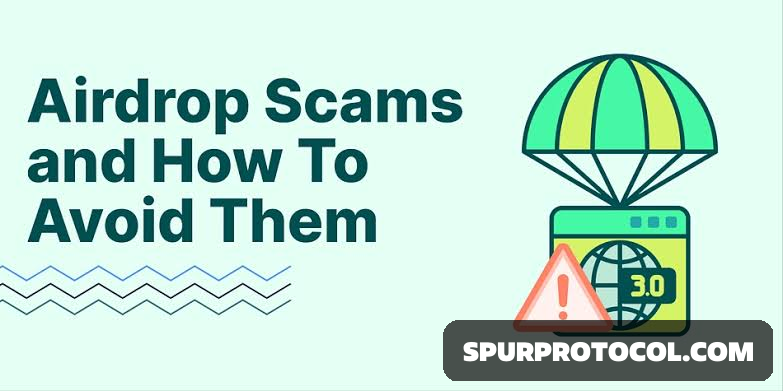Airdrop Scams and How to Avoid Them
Introduction
Airdrops are a popular method in the cryptocurrency space where projects distribute free tokens to users, often to promote awareness or reward engagement. However, scammers exploit this trend to deceive users into revealing sensitive information or stealing funds. Understanding common scams and preventive measures is crucial for safe participation.
Common Types of Airdrop Scams
1. Phishing Scams
How it works: Fake emails, messages, or social media posts mimic legitimate projects, urging users to click links and enter private keys or wallet credentials.
Example: "Claim your free tokens now!" links directing to fraudulent sites.
2. Fake Airdrop Websites
How it works: Clone websites impersonate real projects, tricking users into connecting wallets or downloading malicious software.
3. Malicious Smart Contracts
How it works:Interacting with a scammer’s contract grants access to drain funds from your wallet. Often disguised as "gasless" transactions requiring signatures.
4. Impersonation Scams
How it works: Fraudsters use similar names/logos to reputable projects (e.g., "Etherrum" instead of "Ethereum") to promote fake airdrops.
5. Advance-Fee Fraud
How it works: Users are asked to send crypto to "verify" eligibility or pay fees to receive the airdrop.
6. Social Engineering & Dusting Attacks
How it works:
Social Engineering: Urgent messages pressure quick action (e.g., "Limited time offer!").
Dusting Attacks: Scammers send small, unsolicited tokens to track activity or phish via embedded links.
Red Flags to Watch For
- Unsolicited offers via email/DMs.
- Requests for private keys, seed phrases, or payments.
- Urgency tactics ("Act now or miss out!").
- Slight URL mismatches (e.g., "binance.cc" vs. "binance.com").
- Unverified smart contracts or unknown token origins.
- Overly generous rewards with minimal effort.
How to Avoid Airdrop Scams
1. Verify the Source
- Cross-check announcements on official project channels (website, verified social media).
- Research the project’s team, whitepaper, and community reputation.
2. Protect Private Keys
Never share seed phrases, passwords, or private keys. Legitimate airdrops won’t ask for these.
3. Use a Dedicated Wallet
- Create a separate wallet for airdrops to isolate risks from your primary holdings.
4. Inspect URLs and Domains
- Ensure websites use HTTPS and match the project’s official domain. Bookmark trusted sites.
5. Analyze Smart Contracts
- Use tools like Etherscan to review contract code before interacting. Avoid unverified contracts.
6. Avoid Unnecessary Interactions
- Ignore unsolicited tokens (dusting attacks); do **not** interact with them.
- Reject unexpected transaction requests, especially those requiring signatures.
7. Enable Security Features
- Use hardware wallets (e.g., Ledger) for added protection.
- Enable two-factor authentication (2FA) on exchange and wallet accounts.
8. Stay Informed
- Follow crypto security communities (e.g., Reddit’s r/CryptoCurrency) to learn about new scams.
- Report scams to platforms (e.g., Twitter, hosting providers) to take down fraudulent content.
---
Conclusion
While airdrops can be lucrative, vigilance is key. Legitimate airdrops rarely require payments or sensitive data. Always prioritize security: verify sources, use isolated wallets, and stay skeptical of too-good-to-be-true offers. By adopting these practices, you can safely navigate the crypto landscape and avoid falling victim to scams.
Remember: Your crypto security is in your hands. When in doubt, pause and research.

